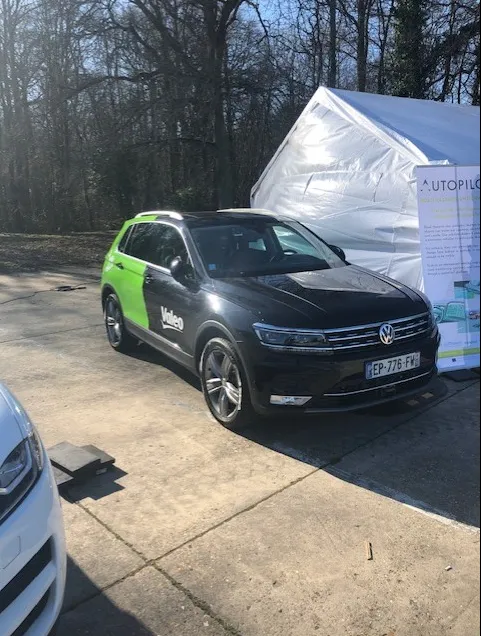The Driven Consortium has completed a week-long demonstration which it says shows that autonomous vehicles (AVs) can operate safely in London - with a safety driver.
Driven - a £13.6 million initiative supported by the UK government - carried out the demo around Queen Elizabeth Olympic Park in Stratford in the east of the city.
Driven has focused on completing fully-autonomous routes within the UK capital and the city of Oxford using
Consortium members Moninet and Axa XL provided risk management work while telecoms giant O2 handled communications.
John Aloy, managing partner, O2 travel and transport, Telefonica UK, says: “Being involved in such trials allows us to see how secure reliable communications are crucial to the success of C/AVs and helps us assess how we can support the future network demands of C/AVs and the supporting infrastructure.”
As part of the initiative, Oxfordshire County Council worked with TRL, Transport for London and RACE to establish safe trials.
TRL’s market development lead for new mobility Iwan Parry says the company has been helping the insurance sector understand the evidence required to adapt insurance pricing models when underwriting C/AV trials.
“We are also using the lessons learned from the Driven trials in the safety framework we are developing as part of the new specifications for regulating the safe conduct of technology testing on public roads in the UK,” Parry adds.
Other members include Oxford Robotics Institute and Telefonica.
In response, Rabih Arzouni, chief technology officer, transport sector, Fujitsu UK&I describes the trial as an “exciting step for the technology” on UK roads but warns that “commercial-friendly” AVs are at least a decade away.
“The technology itself is capable, but it’s the infrastructure surrounding driverless vehicles that will take years and millions in investment to introduce,” Arzouni continues. “From introducing separate roadways for driverless vehicles, to resolving issues surrounding cybersecurity and connectivity, particularly in rural areas, there are major challenges which need to be addressed.”
Arzouni claims that Fujitsu’s latest research shows only a quarter of the public would be happy to be picked up by AVs in the future, highlighting they are more concerned by the technology.
“What’s crucial to make driverless vehicles a reality is that technology companies, the government, vehicle manufacturers and transport operators cooperate to ensure that they are approached in a way that will most benefit our cities, towns and wider country, with minimal disruption,” Arzouni adds.
Driven demos AVs operating ‘safely’ in London
The Driven Consortium has completed a week-long demonstration which it says shows that autonomous vehicles (AVs) can operate safely in London - with a safety driver.
Driven - a £13.6 million initiative supported by the UK government - carried out the demo around Queen Elizabeth Olympic Park in Stratford in the east of the city.
Driven has focused on completing fully-autonomous routes within the UK capital and the city of Oxford using Oxbotica’s autonomous software.
Consortium members Moninet and Axa XL p
October 7, 2019
Read time: 3 mins







